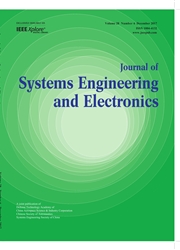

 中文摘要:
中文摘要:
To solve the problem of dynamic power resource allocation for cooperative penetration combat,the continuous game theory is introduced and a two-person general-sum continuous-game-based model is put forward with a common payoff function named collaborative detection probability of netted radar countermeasures.Comparing with traditional optimization methods,an obvious advantage of game-based model is an adequate consideration of the opposite potential strategy.This model guarantees a more effective allocation of the both sides′power resource and a higher combat efficiency during a combat.Furthermore,an analysis of the complexity of the proposed model is given and a hierarchical processing method is presented to simplify the calculating process.Simulation results show the validity of the proposed scheme.
 英文摘要:
英文摘要:
To solve the problem of dynamic power resource allocation for cooperative penetration combat,the continuous game theory is introduced and a two-person general-sum continuous-game-based model is put forward with a common payoff function named collaborative detection probability of netted radar countermeasures.Comparing with traditional optimization methods,an obvious advantage of game-based model is an adequate consideration of the opposite potential strategy.This model guarantees a more effective allocation of the both sides′power resource and a higher combat efficiency during a combat.Furthermore,an analysis of the complexity of the proposed model is given and a hierarchical processing method is presented to simplify the calculating process.Simulation results show the validity of the proposed scheme.
 同期刊论文项目
同期刊论文项目
 同项目期刊论文
同项目期刊论文
 期刊信息
期刊信息
